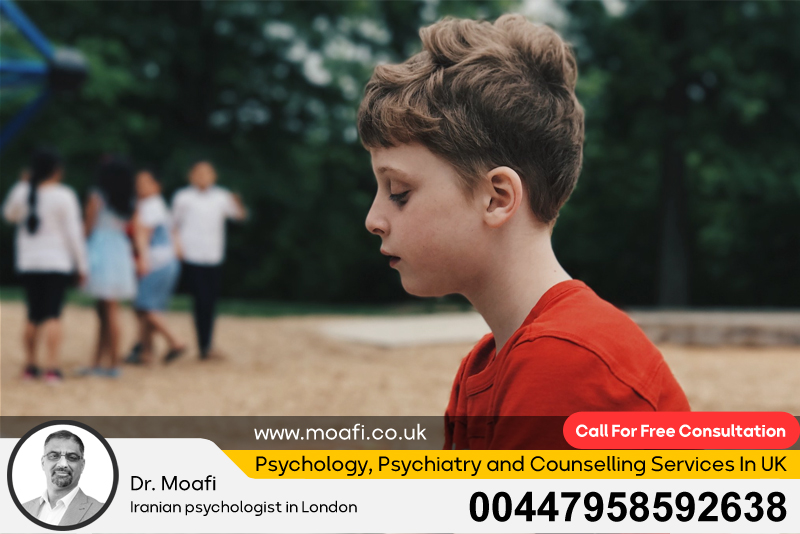Autism Assessment for Boys in London
Autism, or Autism Spectrum Disorder (ASD), is a complex neurodevelopmental condition that affects individuals in various ways, often impacting communication, social interactions, and behavior. When it comes to assessing boys for autism, London presents a range of resources, facilities, and experts dedicated to providing comprehensive evaluations tailored to the unique needs of each child. The importance of early diagnosis cannot be overstated, as timely assessments can lead to earlier interventions, better support systems, and improved outcomes for children on the spectrum.
In London, autism assessments typically involve a multi-disciplinary approach that includes psychologists, speech therapists, occupational therapists, and pediatricians. These professionals work collaboratively to ensure a holistic evaluation of the child’s strengths and challenges. The assessment process often begins with a detailed developmental history, where caregivers provide insights into the child’s early development, communication patterns, and social interactions. This information is vital in understanding the child’s behavior in different contexts.
Diagnostic tools, including observational assessments and standardized questionnaires, form the backbone of the evaluation. Tools such as the Autism Diagnostic Observation Schedule (ADOS) and the Autism Diagnostic Interview-Revised (ADI-R) are commonly used to assess core symptoms of autism across various domains. Healthcare providers in London also emphasize the significance of considering co-occurring conditions such as ADHD, anxiety, and sensory processing issues, which frequently accompany autism. Therefore, a thorough assessment not only identifies autism but also paints a complete picture of the child’s overall health and development.
In recent years, increasing awareness of autism has led to a growing demand for assessment services in London. This demand has encouraged various organizations and private practices to expand their offerings. While some families may opt for NHS services, which can involve longer waiting times, many seek private assessments for more immediate support. The costs associated with private assessments can vary significantly, influencing families’ decisions based on their financial situations. Accessibility and affordability thus remain critical considerations for many parents seeking evaluations for their boys.
Overall, autism assessments for boys in London are becoming more refined and accessible, helping to demystify the complexities of autism and providing families with the necessary guidance to navigate the challenges ahead. Encouraging families to seek timely assessments can foster a supportive environment, ultimately leading to improved developmental trajectories and empowering boys on the spectrum to achieve their fullest potential.
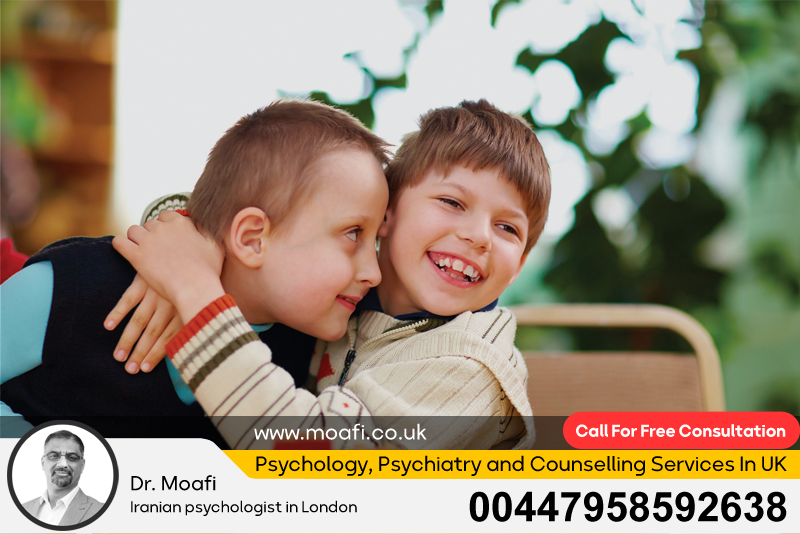
Dr. Alireza Moafi: Autism Assessment for Boys in London
Dr. Alireza Moafi is recognized in London for his extensive expertise in diagnosing and assessing autism spectrum disorders in boys. His approach combines clinical acumen with a deep understanding of child psychology, making him a sought-after professional for families navigating the complexities of autism assessments. Dr. Moafi adopts a comprehensive methodology that considers not only the clinical symptoms of autism but also the individual characteristics of each child. This personalized approach is especially crucial in evaluating boys, who often exhibit a wide range of behaviors associated with autism.
His practice places a strong emphasis on early diagnosis, recognizing that early intervention can significantly influence a child’s developmental trajectory. Families consulting Dr. Moafi undergo a thorough assessment process that generally consists of detailed clinical interviews, observational evaluations, and parent questionnaires to gather in-depth insights into the child’s developmental history and current challenges. By engaging with families in this way, Dr. Moafi ensures that all perspectives are considered, promoting accuracy in the assessment process.
Dr. Moafi employs evidence-based tools that are recognized in the field of autism diagnosis, helping to achieve reliable and valid outcomes. His expertise in using assessments like the ADOS and ADI-R allows him to pinpoint autism characteristics accurately while also considering potential co-occurring conditions, which are common in boys with autism. The results of these assessments pour valuable information into developing targeted intervention plans that cater to the unique needs of each child.
In addition to diagnostic services, Dr. Moafi is committed to providing guidance and support throughout the post-assessment phase. He offers follow-up consultations to discuss findings in detail, helping parents understand the implications of the assessment results. By equipping families with knowledge and resources, Dr. Moafi fosters a collaborative environment where families feel empowered to advocate for their children.
Moreover, Dr. Moafi is actively involved in community outreach and awareness initiatives, striving to reduce stigma and promote understanding of autism in society. By hosting workshops and speaking engagements, he aims to educate parents, educators, and healthcare professionals about autism and the importance of early intervention. This commitment to raising awareness extends beyond his practice, contributing to a broader cultural shift towards acceptance and support for children with autism.
In summary, Dr. Alireza Moafi stands out as a dedicated clinician in London’s autism landscape, offering a compassionate and comprehensive approach to assessments for boys. His commitment to understanding the individual needs of each child, combined with his expertise in diagnostic evaluation and post-assessment support, has made a significant impact on countless families seeking to navigate the challenges of autism.
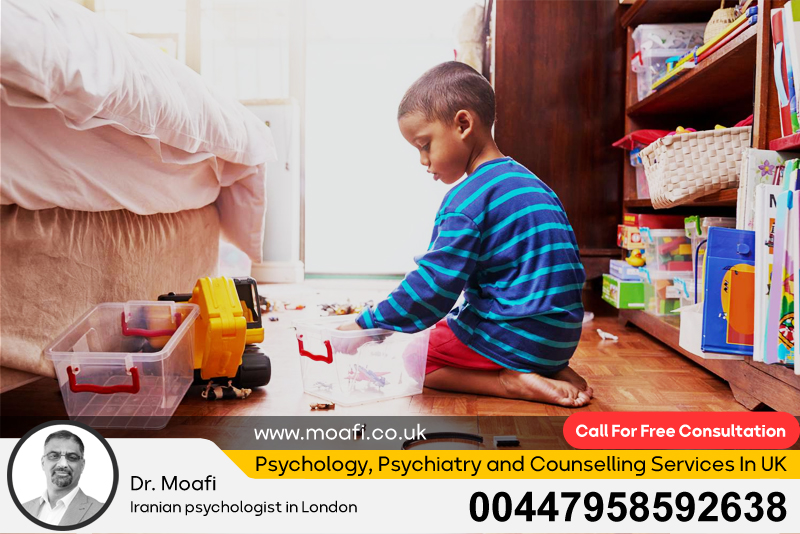
Autism for Boys
Autism Spectrum Disorder (ASD) is increasingly recognized as a complex condition that manifests differently in each individual. While the prevalence of ASD is known to be higher in boys than in girls, the reasons behind this gender disparity are still being explored by researchers. The unique ways boys may express autism symptoms can differ significantly from the traditional understandings of the disorder, requiring parents, educators, and clinicians to be attentive to the nuances involved in diagnosing and supporting boys on the spectrum.
Boys with autism may exhibit certain behaviors and characteristics that distinguish them within the spectrum. Often, they might engage in more pronounced repetitive behaviors or have intense interests focused on specific subjects, which can lead to deep knowledge and expertise in those areas. Common interests among boys with autism can include dinosaurs, trains, or technology, demonstrating their ability to engage deeply with their passions. Understanding these interests is crucial for fostering communication and building rapport.
Social challenges are a hallmark of autism, and boys may face distinct hurdles in peer interactions. They might struggle to comprehend social cues, maintain conversations, or develop friendships, leading to increased feelings of frustration and isolation. These social difficulties can manifest as overly literal interpretations of language or challenges in understanding the unspoken rules of friendship. Consequently, boys with autism can often find themselves navigating complex social dynamics without the necessary tools to thrive, making early intervention and tailored support essential.
Furthermore, behaviors commonly associated with autism—such as meltdowns or heightened sensitivity to sensory stimuli—can be particularly pronounced in boys. These reactions may arise from difficulties in processing sensory information, resulting in overwhelming feelings when faced with certain noises, textures, or environments. Understanding these sensory sensitivities helps caregivers create supportive environments that accommodate the sensory needs of boys with autism.
However, it’s essential to remember that every boy with autism is unique, with a distinct set of strengths and challenges. Recognizing this individuality allows parents and caregivers to celebrate the accomplishments of their children while providing appropriate supports. Awareness of the specific attributes of autism in boys can enhance understanding and promote inclusivity in educational settings, ultimately leading to better outcomes as they transition into adolescence and adulthood.

Signs and Symptoms of Autism Spectrum Disorder in Boys
Recognizing the signs and symptoms of Autism Spectrum Disorder (ASD) in boys can be crucial for early identification and intervention. While autism can present in various ways, certain behavioral patterns and characteristics tend to emerge during early childhood. Understanding these signs allows parents, educators, and clinicians to approach children holistically, fostering an environment that supports their unique needs.
One of the hallmark symptoms of autism is difficulty with social communication and interaction. Boys with ASD may struggle to engage with peers and adults, showing limited eye contact or facial expressions. They might have difficulty initiating conversations or responding appropriately to social cues, leading to challenges in forming friendships. This social disconnect can present itself in various settings, including school, where boys may appear withdrawn or uninterested during group activities.
Repetitive behaviors and restricted interests are other common signs associated with autism. Many boys with ASD may display repetitive movements, such as hand-flapping, rocking, or spinning. These behaviors can serve as coping mechanisms to help manage anxiety or sensory overload. Additionally, boys with autism often develop intense interests in specific subjects, which can become obsessions. These focused pursuits may sometimes be viewed positively as they can lead to high levels of expertise and knowledge; however, they can also hinder flexibility in engaging with a broader range of activities and peers.
Sensory sensitivities are prevalent in boys with autism. They may have heightened or diminished responses to sensory input, such as sounds, lights, textures, or tastes. For instance, a boy might become overwhelmed by the sound of a vacuum cleaner or avoid certain clothing materials due to sensory discomfort. Understanding these sensitivities is vital for caregivers, as creating a more accommodating sensory environment can significantly alleviate distress and improve comfort levels for boys on the spectrum.
Additionally, challenging behaviors such as tantrums or meltdowns can occur when boys with autism experience frustration or overwhelm. These outbursts can be a way of expressing their inability to cope with certain situations. Recognizing the triggers for these behaviors can help parents and educators develop strategies to prevent and manage them effectively, fostering a more supportive and understanding environment.
Finally, communication difficulties—including delayed speech development, echolalia (repeating phrases), or unusual speech patterns—are prevalent in boys with ASD. While some may exhibit strong verbal skills, others may remain non-verbal or have limited communication abilities. Providing appropriate speech and language interventions can empower boys with autism to express their thoughts and needs more effectively.
In conclusion, being aware of the signs and symptoms of Autism Spectrum Disorder in boys enables early identification and intervention, ultimately leading to improved outcomes. By fostering understanding and tailoring support to meet the unique needs of each boy, caregivers and educators can enhance their development and quality of life.
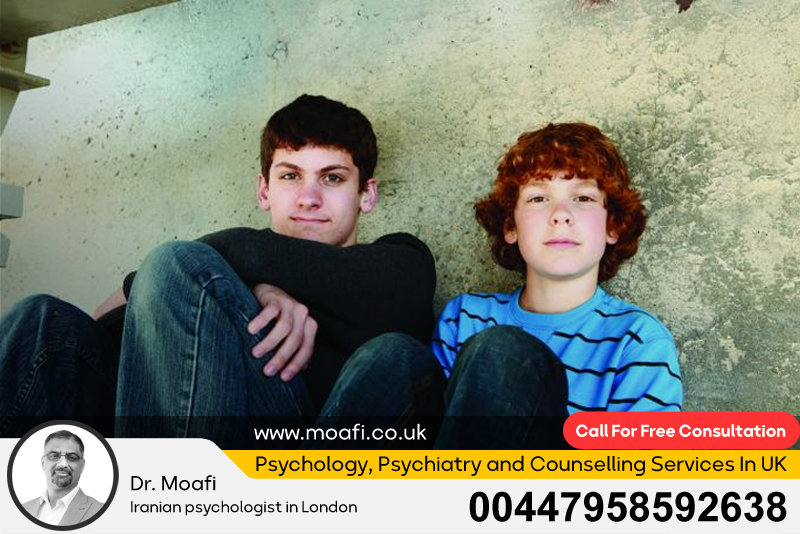
What is Autism in Boys?
Autism Spectrum Disorder (ASD) is a neurodevelopmental condition that affects how individuals perceive the world, communicate, and interact socially. While autism can occur in individuals of all genders, boys tend to be diagnosed more frequently than girls, with studies indicating that the ratio is approximately 4:1. Autism is characterized as a “spectrum” condition, meaning it presents with a wide range of symptoms and varying degrees of severity. Therefore, understanding what autism is in boys requires a recognition of both the commonalities and differences in how boys express the traits associated with the disorder.
Boys with autism can exhibit a combination of social communication challenges, restricted or repetitive behaviors, and specific interests that may appear unusual compared to their peers. For many boys on the spectrum, difficulties in social interaction are prominent. They may struggle with understanding nonverbal cues, such as facial expressions or body language, which can lead to challenges in developing friendships and navigating social situations. These social deficits can sometimes result in feelings of isolation or frustration, particularly during school years when social integration becomes increasingly important.
In terms of communication, boys with autism may demonstrate a wide range of abilities. Some boys may be nonverbal or have significant delays in speech development, while others may develop advanced vocabulary but struggle with the pragmatics of language—the social aspects of communication. This disparity can complicate how they relate to their peers and adults, making it challenging for others to understand their needs or emotions fully.
Additionally, boys may exhibit repetitive behaviors, such as hand-flapping, rocking, or repeating certain phrases. These behaviors can serve as a way to self-soothe, especially in overwhelming environments. Moreover, boys with autism often have intense interests, which can manifest as a deep focus on specific topics, sometimes leading to expertise. Such focused interests can provide boys with joy and a sense of identity but may also limit their engagement with a broader range of activities.
Overall, autism in boys reflects a diverse array of experiences that highlight the need for individualized support and understanding. Parents, educators, and healthcare providers must approach each boy on the spectrum with empathy and an appreciation of his unique qualities, fostering a supportive and enriching environment that empowers him to thrive.

What Causes Autism in Boys?
The precise causes of Autism Spectrum Disorder (ASD) remain the subject of extensive research, and while no single factor has been identified, current understanding suggests that a combination of genetic, environmental, and neurological influences contribute to the development of autism, particularly in boys. Multiple factors interact in complex ways, resulting in the neurodevelopmental differences associated with ASD.
Genetic factors play a significant role in the incidence of autism. Research has shown that there is a higher likelihood of autism occurring in families with a history of the disorder, indicating a hereditary component. Certain genetic mutations or chromosomal abnormalities have also been linked to increased risks of autism. For instance, conditions such as fragile X syndrome and Rett syndrome, which are associated with genetic mutations, have been observed to have higher prevalence rates of autism in affected individuals. While genetics can provide insight into predisposition, it does not account for all cases, emphasizing the need to consider environmental influences.
Environmental factors may also contribute to the risk of developing autism. During pregnancy, maternal exposure to specific variables—such as infections, certain medications, or toxins—has been studied for potential links to autism. Research indicates that factors such as advanced parental age, particularly with fathers, low birth weight, and premature birth may increase the risk of autism in boys. It is essential to note, however, that no definitive environmental factor has been identified as a causal agent; instead, these factors may interact with genetic predispositions to influence the risk of ASD.
Neurologically, differences in brain structure and function have been observed in individuals with autism. Advances in neuroimaging technology have allowed researchers to study brain connectivity and development more closely. Studies show that boys with autism might exhibit atypical brain growth patterns, particularly during early development. These neurological differences can affect how boys process information and respond to their environment.
In conclusion, the causes of autism in boys are multi-faceted, involving a complex interplay between genetic, environmental, and neurological factors. The ongoing research aims to deepen our understanding of these influences, ultimately improving diagnostic processes, intervention strategies, and support systems for boys with autism. By clarifying the causes of autism, we can hope to develop more effective approaches to enhance the well-being of those on the spectrum and their families.
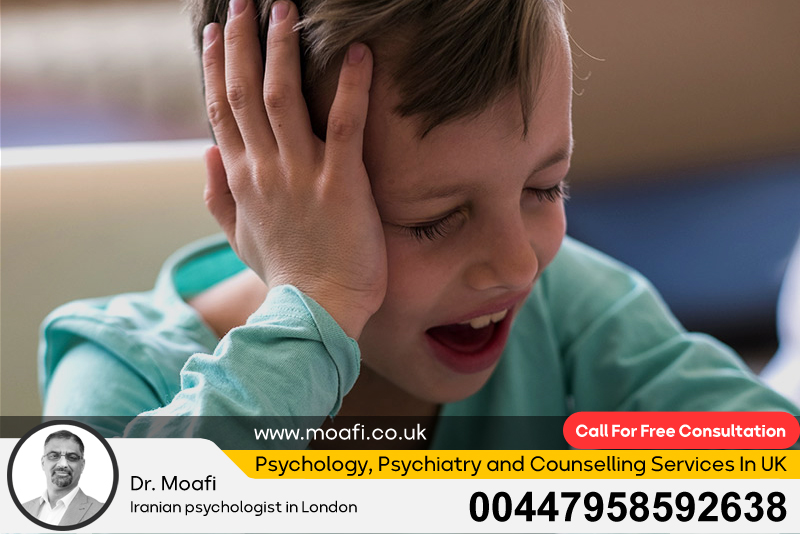
Treatment of Autism in Boys
The treatment of Autism Spectrum Disorder (ASD) in boys is a multifaceted approach that aims to address the diverse needs and strengths of each child. While there is no one-size-fits-all treatment, a combination of therapies and interventions tailored to the individual can result in significant improvements in functioning and quality of life. Early intervention is crucial, as research has shown that the earlier children receive appropriate support, the better their long-term outcomes.
One of the cornerstone therapies for treating autism is Applied Behavior Analysis (ABA), which focuses on improving specific skills and reducing challenging behaviors through structured interventions. ABA employs reinforcement techniques to encourage positive behaviors, making it highly effective in enhancing communication, social skills, and self-help abilities in boys with autism. Individualized programs are developed based on the child’s unique needs, often involving parents and caregivers in the process to ensure continuity of practice across different settings.
Speech and language therapy is another critical component of autism treatment, particularly for boys who may experience challenges in communication. Speech therapists work with children to improve their verbal and non-verbal communication skills, enabling them to engage more effectively with peers and adults. This form of therapy can include developing vocabulary, practicing conversational skills, and learning effective ways to express needs and emotions.
Occupational therapy (OT) is also beneficial for boys with autism, focusing on enhancing everyday life skills and addressing sensory processing issues. Occupational therapists help children develop skills necessary for daily activities, such as self-care routines, play, and social interactions. Additionally, they can provide strategies to cope with sensory sensitivities, allowing boys to better manage overwhelming environments.
Social skills training is particularly important for boys with autism, who may struggle with understanding social cues and forming friendships. These programs often use role-playing and social stories to teach boys how to navigate social situations, fostering their ability to connect with peers and develop meaningful relationships.
Beyond these therapies, it is also essential to consider the support systems available for families. Parent training and support groups can empower caregivers with effective strategies to support their children, helping them better understand autism and promoting healthy family dynamics. Additionally, mental health support might be necessary, particularly for boys who experience anxiety or depression due to their social challenges.
Overall, the treatment of autism in boys involves a coordinated effort from various professionals, including educators, therapists, and healthcare providers, alongside the family. By recognizing the individualized nature of autism and responding with targeted interventions, it is possible to help boys on the spectrum thrive and reach their full potential.
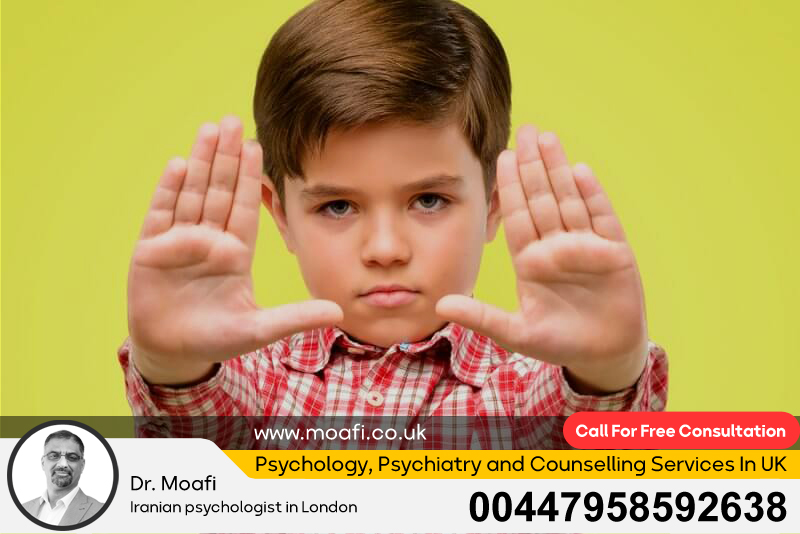
Autism in Boys: Symptoms, Causes, Types, and Testing
Autism Spectrum Disorder (ASD) is a complex condition that manifests with various symptoms, underlying causes, and types. Understanding these elements is crucial for effective diagnosis and intervention, especially when focusing on boys, who are diagnosed at a higher rate than girls.
Symptoms
Boys with autism may display a range of symptoms across social interaction, communication, and behavior. Socially, they often struggle to connect with peers and adults, exhibiting challenges such as limited eye contact, difficulty understanding social cues, and reluctance to engage in play. Communication difficulties may vary; some boys may be non-verbal, while others might have advanced language skills but struggle with pragmatic aspects of conversation. Repetitive behaviors and intense focus on specific interests are also characteristic signs, which can include hand-flapping, rocking, or a strong attachment to particular subjects, such as trains or dinosaurs.
Causes
The exact causes of autism are still not fully understood, but research indicates a multifactorial origin involving both genetic and environmental factors. Genetic predispositions appear to play a significant role, as autism tends to run in families. Specific genetic mutations and conditions, such as fragile X syndrome, have been associated with higher rates of autism. Environmental factors, including maternal health during pregnancy (e.g., exposure to infections, certain medications, or substances) and complications during birth, are also believed to contribute to the risk of developing autism.
Types
ASD is referred to as a spectrum due to the varied presentations of symptoms and their severities. Common categorizations include classic autism, characterized by significant language delays and social challenges; Asperger’s Syndrome, where individuals may have higher functioning capabilities alongside specific interests; and pervasive developmental disorder-not otherwise specified (PDD-NOS), which is a diagnosis for those who exhibit some, but not all, characteristics of autism.
Testing
Diagnosing autism in boys typically involves a comprehensive assessment process. Initial steps often include developmental screenings during routine pediatric visits, especially if parents express concerns about their child’s development. If autism is suspected, further evaluation by a team of professionals—including psychologists, speech therapists, and occupational therapists—may occur. Tools like the Autism Diagnostic Observation Schedule (ADOS) and the Autism Diagnostic Interview-Revised (ADI-R) are commonly employed to assess communication, social skills, and behavior systematically. Early and accurate diagnosis is vital, as it allows for prompt access to interventions tailored to the child’s specific needs.
In summary, understanding autism in boys includes recognizing its symptoms, exploring potential causes, considering the types of autism that may be present, and utilizing effective testing methods to ensure proper diagnosis and treatment. This comprehensive approach can significantly improve outcomes and support for boys on the spectrum while aiding families in navigating the complexities associated with autism.
Dr. Alireza Moafi Will Help You Treat Autism in Boys
Dr. Alireza Moafi stands out as a leading specialist in the assessment and treatment of Autism Spectrum Disorder (ASD) in boys. His comprehensive approach encompasses understanding the unique challenges that boys with autism face and providing tailored interventions that meet their specific needs. With a wealth of clinical experience, Dr. Moafi has dedicated his practice to creating a nurturing environment where boys on the spectrum can thrive.
Dr. Moafi emphasizes the importance of early intervention in his treatment protocols. Recognizing that timely support can significantly impact long-term outcomes, he works closely with families to develop individualized treatment plans as early as possible. These plans typically incorporate various evidence-based therapies, including Applied Behavior Analysis (ABA), speech and language therapy, and occupational therapy. By utilizing a multi-disciplinary approach, Dr. Moafi ensures that each boy receives comprehensive care addressing his social, communicative, and sensory needs.
One of the key elements of Dr. Moafi’s work is the emphasis on collaboration with parents and caregivers. He believes involving families in the therapeutic process is essential for achieving meaningful progress. As a result, he offers parent training sessions that equip caregivers with effective strategies to support their children at home and in community settings. This family-centered approach helps create a consistent framework for therapy, reinforcing learning and skills development.
In addition to direct treatment, Dr. Moafi is committed to raising awareness and understanding of autism within the community. He conducts workshops and training sessions for educators and healthcare professionals to ensure they are equipped with the knowledge to support boys with autism effectively. By fostering a greater understanding of autism, Dr. Moafi aims to create a more inclusive society that actively supports individuals with this condition.
Moreover, Dr. Moafi utilizes the latest research and best practices in his treatment protocols, ensuring that families receive the most up-to-date and effective interventions. He is continuously refining his methods based on emerging data about autism and child development, ensuring that his practice remains at the forefront of the field.
Overall, Dr. Alireza Moafi is deeply committed to empowering boys with autism to realize their potential. His individualized, compassionate approach and dedication to supporting families make him a trusted partner in the journey toward understanding and treating autism.
Free Consultation for Boys with Autism
Accessing appropriate care and support for boys with Autism Spectrum Disorder (ASD) can often feel daunting for families. To alleviate some of these concerns, Dr. Alireza Moafi proudly offers free consultations for boys with autism and their families. This initiative aims to provide an initial assessment and guidance to parents seeking to understand their child’s unique needs without the burden of financial stress.
During the free consultation, families have the opportunity to discuss their concerns and observations regarding their child’s development. Dr. Moafi takes the time to listen to parents’ experiences and gather valuable information about the child’s behavior, communication, and social interactions. This open dialogue serves as a foundation for understanding the challenges the family may be facing and provides an essential starting point for determining the need for further evaluation or intervention.
In addition to gathering information, the consultation allows Dr. Moafi to explain the autism assessment process to families, demystifying what to expect if they decide to pursue a full evaluation. He outlines the different types of assessments available, including observational assessments and structured interviews, and emphasizes the importance of a comprehensive approach that considers both the child’s strengths and challenges.
By providing this free consultation, Dr. Moafi aims to empower families with knowledge and support early in the assessment process. Understanding the intricacies of autism can help parents feel more confident in advocating for their children and navigating the often-complex landscape of treatments and supports available.
Furthermore, Dr. Moafi encourages parents to ask questions during the consultation, addressing any worries they may have about their child’s development or the potential implications of an autism diagnosis. This open and honest communication ensures that families feel heard and valued, laying the groundwork for a strong collaborative relationship moving forward.
The offer of a free consultation is just one example of Dr. Moafi’s commitment to accessibility and support for families affected by autism. By removing financial barriers, he hopes to ensure that all families have the opportunity to seek the guidance and intervention they need to help their boys with autism thrive. Through his compassionate approach and commitment to knowledge sharing, Dr. Moafi is dedicated to making a meaningful difference in the lives of boys with autism and their families.



